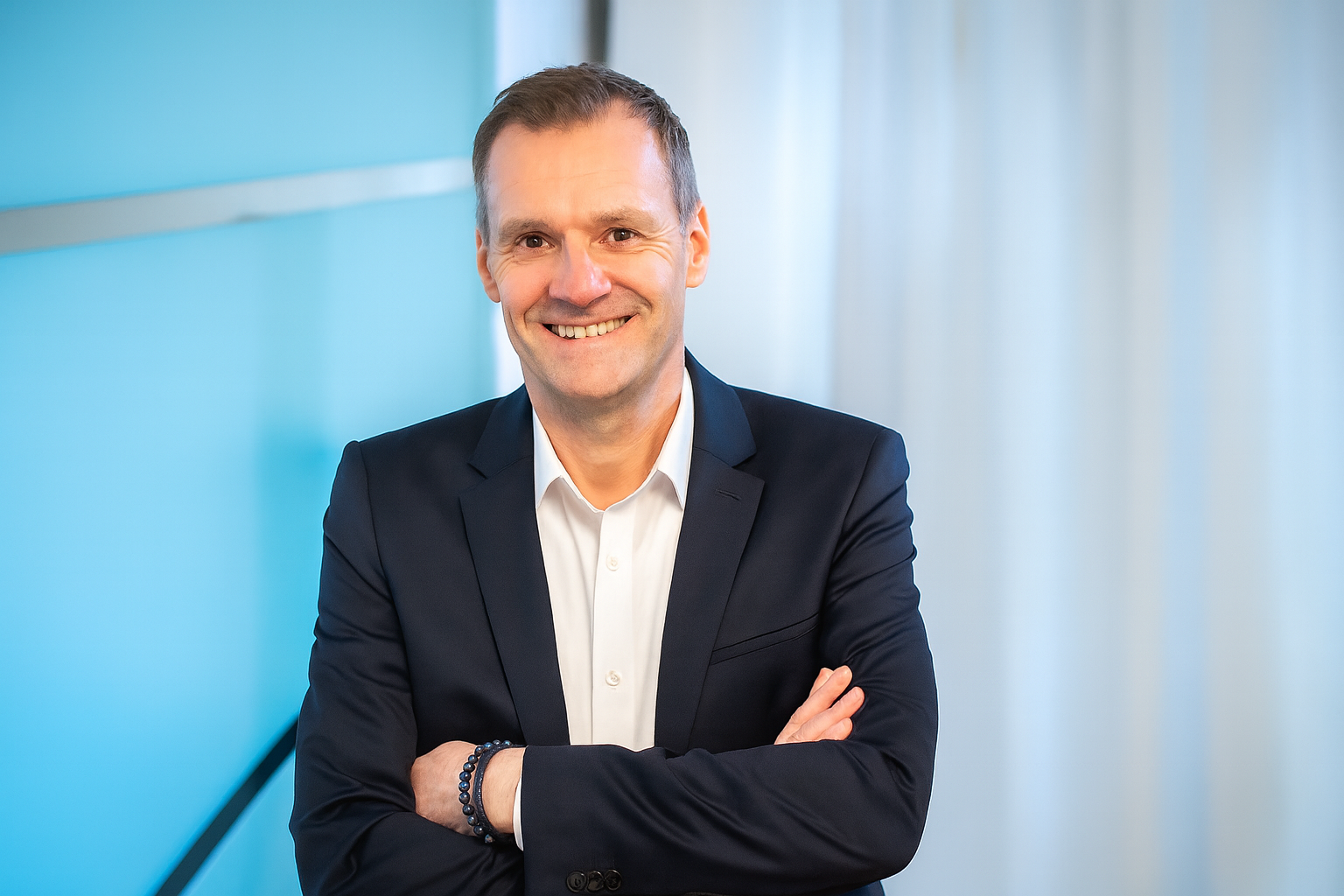
With more than three decades of strategic and operational expertise, Klaus Bichler is redefining how companies navigate transformation, optimize supply chains, and unlock the power of digitalization.
In the quiet town of Eugendorf, just outside Salzburg, a different kind of consulting firm has been steadily reshaping how companies think about transformation.
Behind it stands a man whose career spans more than three decades, but whose vision remains strikingly modern: Klaus Bichler, Founder and CEO of BCM Consulting & Management GmbH.
Bichler speaks about business the way engineers speak about architecture — as a living system of structures, forces, foundations, and tensions. For him, strategy is not an abstract discipline; it is the blueprint of a company’s future. And execution is the craftsmanship that turns those plans into something that stands the test of time.
His story is not that of a consultant chasing frameworks or trends. It is the story of a practitioner — someone who has spent years inside organizations, steering processes, stabilizing operations, resolving crises, and building systems that last.
That experience has shaped the essence of BCM: a consulting firm that believes real transformation happens where analysis meets action, where strategy meets the shop floor, and where people meet technology.

“Companies today don’t just need advice — they need orientation, clarity, and partners who help them move,” Bichler says.
It is a simple statement, yet it captures the essence of BCM’s approach. In Bichler’s world, consulting is not a theoretical exercise. It is a responsibility.
A Leader Formed by Decades of Practice
Klaus Bichler’s professional path began long before digital transformation became a buzzword. His early career placed him inside real operations — in procurement departments, production environments, logistics networks, and management teams navigating periods of growth and uncertainty.
Those years shaped his understanding of what truly drives a company forward: processes that flow, people who understand their roles, leadership that communicates clearly, and decisions grounded in data rather than assumptions.
It also gave him something rare: the ability to see a business from every angle. From the production hall to the boardroom, from supply chains under pressure to teams in the middle of change, Klaus Bichler has lived through the complexities that many consultants only study from a distance.
When he later founded BCM, he built the company around that practical heritage. The result is a consulting style that is unapologetically hands-on, refreshingly direct, and designed for organizations that need genuine movement.
The Digital Imperative
If there is one theme that defines modern business, it is digitalization. Yet for all the talk about innovation, many organizations still operate on outdated systems, manual processes, and siloed information. Bichler sees this gap with particular clarity.
“Digital transformation is no longer an optional project — it is the backbone of competitiveness,” he explains.
For BCM, digitalization is not about gathering trendy tools. It is about rethinking how companies operate. It means enabling departments to communicate seamlessly, giving leaders dashboards instead of spreadsheets, forecasting instead of reacting, and ensuring every team works with the same real-time data.
In Klaus Bichler’s view, technology is the great equalizer: the force that allows mid-sized companies to compete with industry giants and enables established players to adapt to volatile markets. But technology alone is never enough. Without structure, processes, and people who understand the why, digitalization becomes little more than a collection of software licenses.

“Presenting something complex is easy – the difficulty lies in presenting complexity in a simple way.”
What truly distinguishes Klaus Bichler’s approach is his ability to translate complexity into clarity. Many companies struggle not because digital solutions are unavailable, but because they are overwhelmed by the sheer scale of their own processes: hundreds of interfaces, legacy systems, conflicting data streams, and organizational structures that have grown over decades. Bichler has an exceptional talent for cutting through that noise.
He breaks down sprawling workflows into logical sequences, identifies the points where technology can create real leverage, and designs digital solutions that are not only powerful but strikingly simple to implement.
For clients, this often feels like someone has finally “decoded” their organization — turning what once seemed unmanageable into a streamlined, automated, and understandable system. In essence, Bichler makes digitalization of even the most complex processes not only achievable, but refreshingly straightforward.
This is where BCM’s strength becomes most visible. Klaus Bichler and his partners do not simply recommend tools — they integrate, translate, and implement. They understand the operational heartbeat of a company well enough to ensure that digital solutions actually improve it.
Supply Chains as Strategic Engines
Supply chains have long been treated as technical disciplines — essential, but often undervalued. The global crises of recent years changed that perception dramatically.
Today, supply chains are strategy. They are risk management. They are the difference between growth and stagnation.
Few understand this better than Bichler. With decades of experience across procurement, production planning, distribution, and logistics, he views supply chains as living ecosystems. Every decision resonates through them: a missed forecast, a delayed shipment, a misaligned capacity plan.
At BCM, supply chain management is approached holistically. It is not merely a question of cost optimization; it is a discipline of resilience, adaptability, and long-term positioning.
Clients often describe BCM’s work as the moment when blind spots turn into insights — when the entire chain suddenly becomes visible, predictable, and strategically controllable.
Guiding People Through Change
But even the best strategy fails if people cannot carry it. Bichler is keenly aware of this. Throughout his career, he has witnessed how teams react to change: the hesitation, the uncertainty, the resistance — but also the spark that ignites when employees understand the vision behind the transformation.
Change management, he believes, is the quiet force that decides whether a transformation becomes part of an organization’s DNA or fades once the project ends.
BCM therefore places strong emphasis on communication, involvement, and clear guidance. Leaders and teams are not merely informed — they are empowered. Processes are not simply restructured — they are explained. And goals are not just set — they are understood.
Bichler’s leadership style combines clarity with pragmatism. He expects commitment, but he also fosters trust. It is this balance that allows BCM to deliver transformations that endure.
A Vision Grounded in Reality — and Built for the Future
In conversation, Klaus Bichler often returns to a single idea:
Transformation must be measurable. It must be concrete. It must deliver.
This philosophy is increasingly rare in a business world overflowing with buzzwords and short-lived trends. BCM’s strength lies in bridging that gap — transforming modern concepts like automation, data-driven decision-making, and predictive planning into real structures inside real companies.
As the global economy becomes more uncertain, Bichler’s work becomes even more relevant. Companies need leaders who understand complexity, who can reinterpret old structures, and who are not afraid to challenge established habits.
BCM is built on exactly that mindset. It stands for clarity in the middle of uncertainty. For structure in the face of complexity. For digital solutions rooted in operational truth. And for leadership that understands that transformation is not an event — it is a continuous act of building.
Closing
Klaus Bichler is, in many ways, an architect of modern business. His work combines experience with vision, pragmatism with innovation, and traditional management with the possibilities of digital technology.
For companies seeking real progress — not just presentations — BCM offers something increasingly rare: a partner who understands the past, navigates the present, and builds for the future.
In a world defined by disruption, Klaus Bichler’s message remains consistent:
“Don’t fear complexity. Understand it. Shape it. And turn it into your advantage.”


